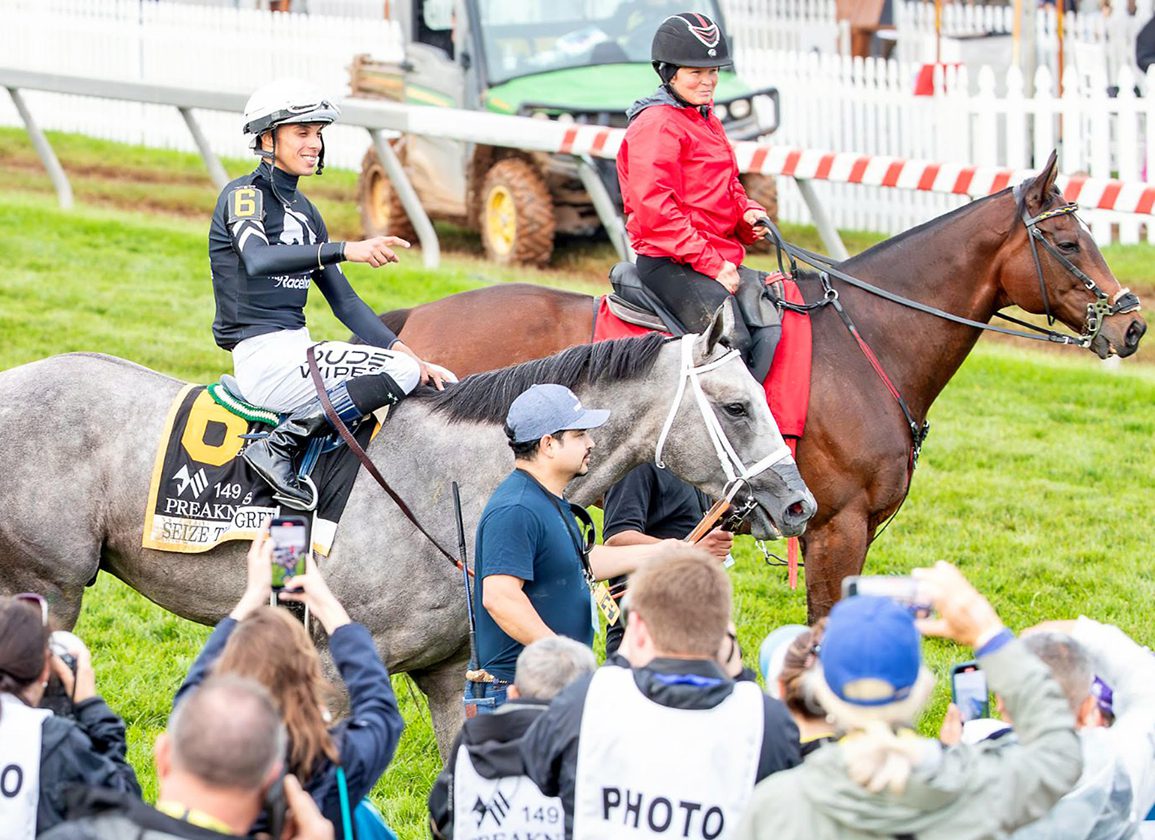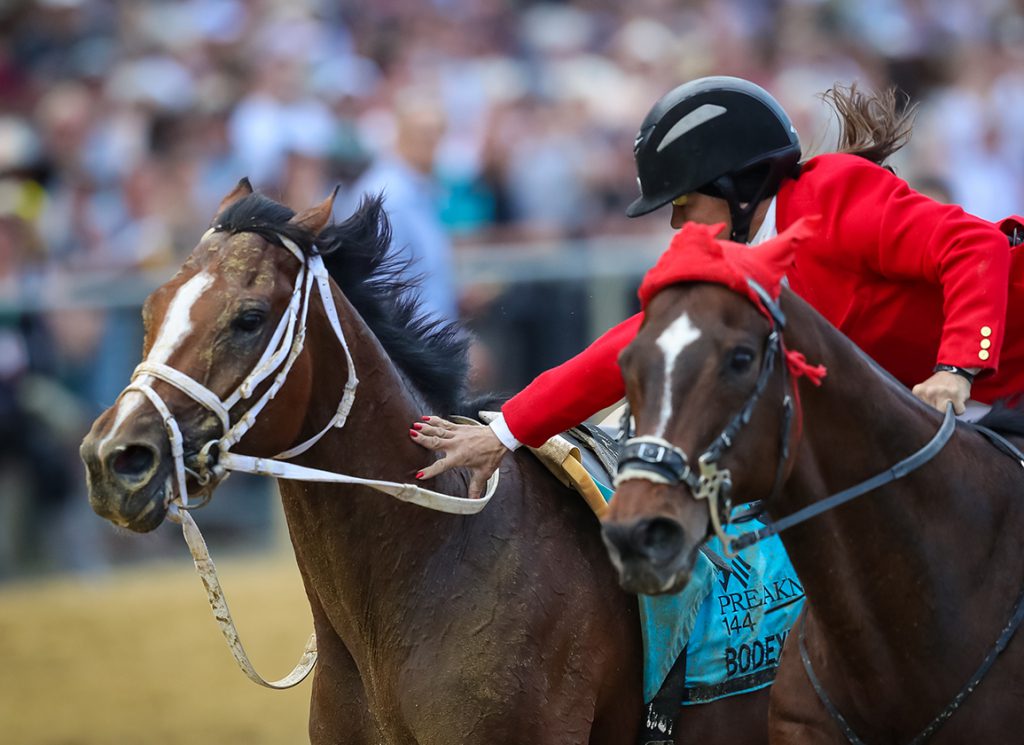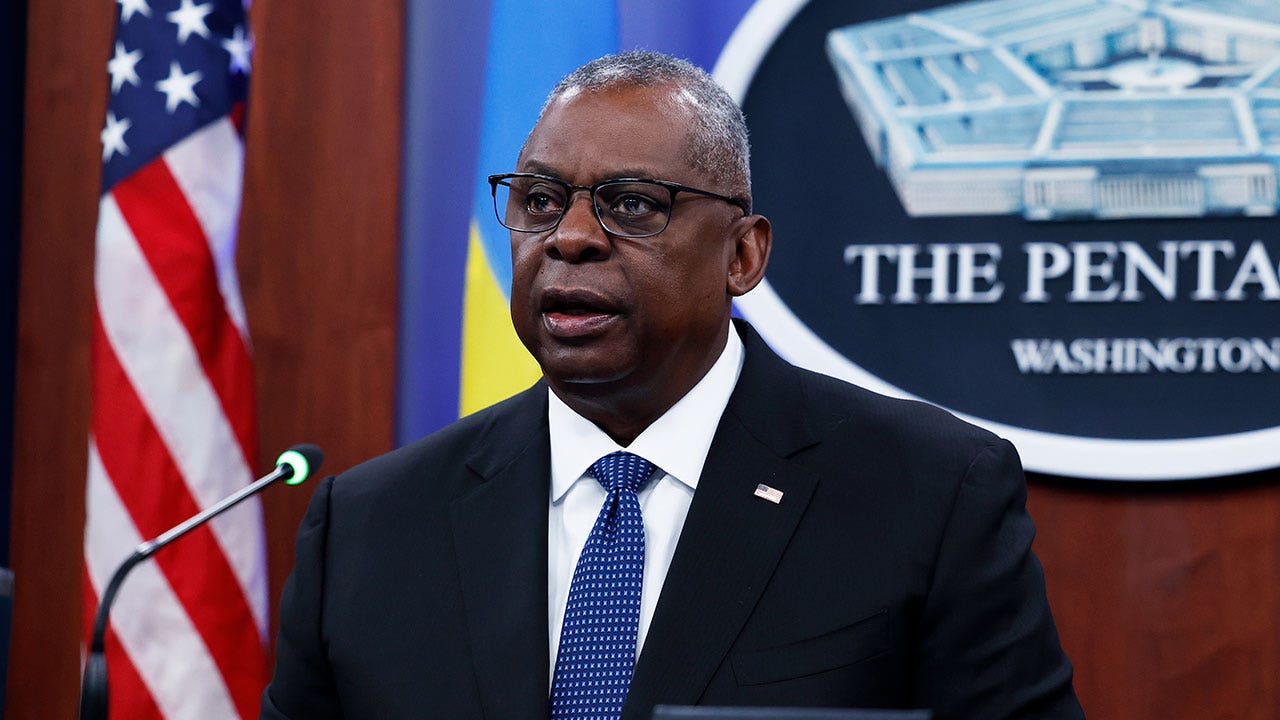Maryland
No. 20 Maryland baseball falls to Penn State in penultimate game of regular season, 5-3

Maryland baseball’s magic number for at least a share of the Big Ten regular-season title sat at one on Friday. With a win, the Terps would have clinched the title for the second season in a row.
After taking the lead in the fifth, the Terps looked to be in prime position to do so.
Both teams were in the midst of a tight pitching battle as the score stood 3-2 in favor of the Terps, but Penn State junior infielder Jay Harry hit a two-RBI single that took back the lead.
Maryland didn’t score the rest of the game, and ultimately fell to the Nittany Lions, 5-3.
Unlike Thursday’s game — in which there were 32 runs scored — both team’s starting pitchers and defense were solid Friday.
Penn State sophomore right-handed pitcher Tommy Molsky held Maryland’s offense relatively quiet in his outing, tossing five scoreless innings. Meanwhile, Maryland junior right-hander Jason Savacool had an up-and-down start, surrendering four runs on eight hits. He did fan six batters, though.
Penn State struck first in the second inning when graduate catcher Thomas Bramley hit a two-RBI double.
Even so, it was night and day for the Maryland defense from Thursday to Friday. It executed a gorgeous double play between junior catcher Luke Shliger and sophomore first baseman Eddie Hacopian with the bases loaded in the third. The Terps committed no errors and stranded nine Penn State runners the entire game.
Maryland’s bats finally clicked in the fifth. Hits by junior shortstop Matt Shaw, senior third baseman Nick Lorusso and sophomore outfielder Ian Petrutz drove in three runs to give the Terps a 3-2 lead.
But the two-run single in the fifth from Harry proved too much for the Terps, who couldn’t get anything else going.
Penn State senior left-handed pitcher Ryan Partridge pitched three innings of scoreless baseball in what might have been the last appearance of his career to secure the win for the Nittany Lions.
With the loss, the Terps dropped to 16-7 in Big Ten play ahead of their regular-season finale at Noon Saturday
Three things to know.
1. Maryland’s offense cooled off. It was a rare occasion in which Maryland’s pitching staff lacked run support. The Terps’ three-run rally in the fifth was the only time they scored all game, as Penn State’s Molsky and Partridge shut down the Terps all game long.
2. The Terps need to wait another day. Maryland was hoping to clinch the Big Ten regular-season title on Friday, but will have to wait until tomorrow with the loss. It has a chance to clinch Friday evening if Indiana loses against Michigan State, but can also can clinch if it wins Saturday’s affair against Penn State.
3. Defense kept the game close. Both teams stranded a total of 16 batters, with both team’s defenses committing no errors after a disastrous showing on Thursday. While both pitching staffs gave up a good amount of hits, there weren’t many dangerous balls hit.

Maryland
Gov. Moore vetoes four bills, lets audiologist bill become law without his signature – WTOP News

Press association beats back public notice bill it missed during the 2024 session.
This article was republished with permission from WTOP’s news partners at Maryland Matters. Sign up for Maryland Matters’ free email subscription today.
A bill that would have curbed some public notice advertising revenue for newspapers in Maryland has been vetoed by Gov. Wes Moore (D).
House Bill 1258 was one of four from the 2024 legislative session vetoed by Moore. Two others — identical House and Senate bills expanding the scope of work audiologists can do — were allowed to go into law without the signature of the governor.
All the actions announced Friday were expected.
In vetoing the public notice bill, Moore cited concerns about “ensuring the existence of thriving independent local media.”
HB 1258, sponsored by Del. Elizabeth Embry (D-Baltimore City), would have ended the requirement that public notice on estates be placed in newspapers around the state, allowing them instead to be published on a central website created by the state’s registers of wills.
The bill was overlooked by newspapers and media organizations who have fought off similar bills over the years. Those same groups launched a lobbying effort after the session to secure Moore’s veto.
Rebecca Snyder, executive director of the Maryland-Delaware-DC Press Association, said the veto “underscores Gov. Moore’s acknowledgment of the role of news media and how important our watchdog function is — not only the investigative work that that news media is known for but also the public notice and public records that are a really important way to hold government people in power accountable.
“We understand that this is part of a broader conversation, and we’re willing, certainly, to work with other stakeholders on this. But we are really happy to have seen, kind of, the fruits of our advocacy come to pass,” Snyder said.
The press association, which represents newspapers in the state, said the move would end a practice of independence and transparency. It also would have hit the flagging industry in its pocketbook, a fact noted by Moore.
“The press also plays an important role in public accountability through investigative journalism,” Moore wrote in his veto letter. “Public notice requirements have helped sustain much of the local print media in Maryland as print advertising dollars have dried up and the entire print media industry has consolidated and downsized.
“Many communities in the state now suffer from a lack of press coverage of local news, undermining public accountability. To so rapidly remove such a large source of advertising revenue as estate notices without considering the impact on the future of local media in Maryland could have severe consequences,” he wrote.
Even so, the governor said changes and technology and cost savings for local governments and families should not be ignored. Moore said lawmakers were not given the opportunity to “balance these two significant public interests.”
Supporters said the bill would have saved estates and families money.
Moore agreed. In his veto letter, he said that “existing print public notice requirements do present a financial burden on local and state governments as well as individual citizens.”
“This is the challenge that Delegate Embry was seeking to address,” the letter said.
Moore wrote that the costs to estates are an important concern “and one that should be dealt with.”
Moore vetoes three other bills
Senate Bill 60 would have authorized out-of-state dealers to temporarily display motor homes, recreational vehicles and trailers at shows around the state. The out-of-state dealers could not take orders nor accept deposits under the measure.
The bill also would have required the Department of Commerce to conduct a study on the impact of out-of-state dealers at the Maryland RV show held at the Maryland State Fairgrounds in Timonium.
Sen. Mary Beth Carozza (R-Eastern Shore), lead sponsor of the bill, said the goal was to bolster local RV shows while protecting businesses licensed in the state.
Moore said he rejected the “well-intentioned bill” to protect Maryland jobs.
“Maryland’s recreational vehicle industry is made up of small businesses who employ a total of more than 300 employees statewide,” Moore wrote. “As with many of the small businesses that propel our economy and further opportunities for families in the state, a consistent and reliable marketplace is crucial. Senate Bill 60, as passed, creates a significant and temporary shift in the marketplace for RV dealers with unknown impacts.”
Senate Bill 380 would have created a 21-member workgroup to examine efforts to recruit and retain police officers around the state. Moore vetoed the bill saying it duplicated other efforts.
“It is not necessary to create two workgroups designed to address the same problem,” he wrote.
Senate Bill 693 was identical to a House bill Moore signed May 9, authorizing Carroll County government to borrow $28.9 million through bonds for projects within the county. The governor vetoed the Senate version, saying that “enactment of duplicate bond bills would double authorized debt.”
Audiologist bill becomes law, needs more work
Moore, as expected, allowed identical bills — HB 464 and SB 795 — to become law without his signature.
The bills allow licensed audiologists to diagnose and treat auditory conditions; sell, dispense, and fit hearing aids and external portions of cochlear implant devices; perform ear cleaning; and order blood work and tests as it relates to auditory conditions.
MedChi, the Maryland State Medical Society, opposed the bill that it said “vastly expanded” the work of audiologists.
“I acknowledge and commend the General Assembly, particularly the Finance and Health and Government Operations Committees for their work with advocates to authorize audiologists to practice to the full extent of their training and provide appropriate access to care for Marylanders,” Moore wrote. “However, discussions with proponents and opponents of the bill have made clear that the statute will require further clarification.”
Moore, in his letter, recommended proponents and opponents “collaborate on revisiting these statutes during the interim to ensure that the differences between audiology and otolaryngology are made more clear.”
MedChi CEO Gene Ransom said Friday that his organization “obviously is pleased that Gov. Moore addressed the desire to fix the problem that we identified. We’re looking forward to working with the administration and the General Assembly to make the bill workable.”
Maryland
Maryland Rallies Behind Outrider Kreidel after Post-Preakness Van Accident

By T. D. Thornton
It was 9 p.m., several hours after the GI Preakness S. last Saturday, when Maryland Jockey Club (MJC) outrider Kaymarie Kreidel was basking in the glow of having escorted Seize the Grey (Arrogate) to the winner’s circle after his triumph in the second jewel of the Triple Crown.
Kreidel, 52, has worked as an outrider since retiring from being a jockey in 2006. She first started part-time in that job during morning training at Pimlico Race Course and Laurel Park, then about nine years ago landed the full-time outriding gig for the afternoon races.
With a reputation as a level-headed, well-respected horsewoman, her previous Preakness highlight was deftly catching the loose Bodexpress (Bodemeister) when he dropped his jockey at the start of the 2019 race. But the 2024 edition of the Preakness was her first time drawing the prestigious assignment of accompanying the winner back to the grandstand to be adorned in a blanket of Black-Eyed Susans while 5.5-million viewers looked on via national TV.
Kreidel works with a rotation of three of her own ponies, and the two she employed at Pimlico May 18 are both retired Thoroughbred geldings, the 17-year-old Witch Hunter and the 12-year-old Wolftrap.
Kreidel had already been up since 3 a.m. when she began the post-Preakness haul back to Laurel with her own truck and trailer 18 hours later, and although she was tired, the satisfaction of a long but safe weekend was the only thing riding shotgun with her as she began a 30-mile drive she has made countless times before.
“We had a very good Preakness weekend,” Kreidel told TDN in a Friday phone interview. “Everything was going great. Hunter was so proud, because this is the first time he’s taken a Preakness winner. Back in 2019, he was the one who caught the loose Preakness horse. So since this was my first year taking the Preakness winner, I felt like he should have the honor of doing it.”
Midway through her ride home in the dark, Kreidel was approaching a green light on Route 26, and she proceeded through, albeit with caution because the road dipped downward on a hill after the intersection.
“Unfortunately, the car behind me didn’t want to wait for my van to get through the light,” Kreidel explained. “So he zipped around me in the left lane and then cut across in front of me to make a right-hand turn. And when he did so, he hit the brakes, causing me to hit my brakes. But with the weight of the truck and we were going downhill, it kind of jerked the trailer a little bit, and Hunter slipped and fell.
“The other car didn’t stop,” Kreidel said. “Kept on going. Probably did not realize anything. Probably saw me stop, but since I didn’t hit him, he kept on going. But when I stopped I felt and heard the scrambling behind me.
“I put my truck in park, and I jumped out,” Kreidel continued. “When I opened the back door, I just busted out crying, because, unfortunately, Hunter was trapped and getting trampled beneath Wolftrap. They were both panicking. Hunter’s scrambling around, Wolftrap’s scrambling too, but in the process of doing so he’s stepping all over his brother. It was pretty scary and horrific, and I’m all by myself, there’s nobody with me.”
Kreidel knew she couldn’t safely back the horses out of the rear door because of the way they were positioned.
“I knew my only shot was to open the side door,” Kreidel said. “But in order to do that, I had to be stepping out into traffic. So I needed the traffic stopped so I could get Wolftrap out, get Hunter back up on his feet and get him out, and then assess the damage.”
Perhaps because her stoppage on the side of the road didn’t look like an obvious accident scene, no one stopped to help despite numerous vehicles whizzing by.
“So I went around to the side of my trailer, and I’m standing out in the middle of the road. I was waving my arms, just flagging for people to stop their cars. They’re driving around, they’re yelling at me, telling me, ‘Get your drunk ass off the road!’ and just saying so many things to me and being so rude. I must have had 50 or 60 cars go by me and not stop.
“And then finally this car stops in the middle of the road,” Kreidel said. “They put their flashers on, a guy gets out, and he walks over and says, ‘Can I help you? What’s wrong? You look upset.’ I said, ‘I was just involved with an incident with another car, my horses have fallen, and if I don’t get them out, they’re going to end up killing themselves inside my trailer.’”
Outrider Kaymarie Kreidel | Jim McCue
Kreidel said the car contained two couples who appeared to be in their mid-20s. They told her they knew absolutely nothing about horses, but that they would do everything they could to help.
First the driver repositioned his car to better block traffic, putting the vehicle in harm’s way to do so. One of the women phoned 911, and the others assisted in dropping the ramp of the van.
“I get Wolftrap out. I hand him to that first guy,” Kreidel recalled. “Hunter was all tied up, so his neck was twisted. It looked like his neck was broken, to be honest. But I knew it wasn’t because he was screaming. I don’t know if you’ve ever heard a horse scream, but it’s horrific.
“He was screaming at the top of his lungs. He’s twisted and pinned and he can’t get up. I started pulling on his tail and pushing on his shoulder, and I eventually get him up. He scrambles to his feet and goes flying out of the trailer in a panic.”
Eventually, the Good Samaritan driver ended up holding both horses while Kreidel looked them over. Wolftrap appeared okay, she said. But Hunter was bleeding profusely from his left leg.
Amazingly, Hunter and Wolftrap calmed down rather quickly, and they began munching on grass while the stranger held them.
“They were out there grazing, just out in somebody’s yard, I don’t know,” Kreidel said.
Kreidel phoned her son, the trainer T.J. Aguirre, Jr., who rushed right over.
Because Route 26 is well-travelled by racetrackers, Kreidel said that it didn’t take long for a number of people from the backstretch community who were also heading from Pimlico to Laurel to stop when they saw a horse van off to the side of the road.
A veterinarian was among them, all dressed up for a post-Preakness dinner with her significant other. She administered first aid while telling Kreidel that Hunter’s wound was dire enough to necessitate a trip to a major equine hospital like New Bolton Center, about 2 1/2 hours away in Pennsylvania.
“Now I’m in an absolute panic. I’ve got one trailer and two horses, and I’ve got to go in two different directions,” Kreidel said. “I probably had 20 or 30 racetrack people who were on their way home stopping to help, and everybody’s on their phones, and we’re all trying to find another truck and trailer than can get to us ASAP.”
Sarah Dilodovico, a Maryland Racing Commission veterinarian, heard what was happening and phoned Kreidel from the track. “I’ve got my truck. I don’t have a trailer. I’m at Pimlico,” she said. “I will find a trailer if I’ve got to steal somebody’s trailer.”
Fortunately, thievery wasn’t necessary, as another volunteer, the pony rider Sharon Greenberg, offered the use of her van. The plan ended up being that Aguirre would take Wolftrap back to Laurel in his mom’s trailer, while Dilodovico offered to drive Kreidel and Hunter to New Bolton in her truck with the borrowed van.
“During all this process, the two couples that originally stopped to help me, they just disappeared,” Kreidel said. “Once all the other people starting coming to help, they just made their way out of there, and I never got a chance to thank them properly. If it wasn’t for those four, I probably would have lost Hunter. They had never been around horses a day in their life. But they stopped and helped me. They saved my horse’s life.”
For the long ride to New Bolton, “I rode in the back with Hunter, and I ended up just sitting in the stall, bawling my eyes out,” Kreidel said.
Not only did Dilodovico help by driving, but Kreidel relied on her expertise once they arrived at the clinic, because Kreidel said she had no clue about the medical terms the veterinarians were throwing around.
“Sarah just said, ‘I’ve got this–let’s go ahead and do it.”
Hunter had no broken bones, needed stitches for the knee, and was very banged up and bruised, Kreidel said.
“In layman’s terms, half of his left knee was kind of like ripped off, so his joint capsules were ruptured inside,” Kreidel said. “Unfortunately, there was not much skin left on his knee, and a lot of it was exposed. If they didn’t end up working on it and cleaning it out immediately, I would have had to end up putting him down.”
By Sunday morning, Hunter was moved for observation to New Bolton’s orthopedic wing.
“They wanted to keep a close eye on him, because joints are very dangerous, especially knee joints,” Kreidel said. “But so far, knock on wood, as of [Friday], everything is progressing the right way. They’ll need about two weeks to make sure no infection sets in.
“As of now, they believe, with time, Hunter will be able to go back to his old job,” Kreidel said.
Wolftrap, Kreidel said, suffered only “minor nicks, minor scratches, nothing deep enough for stitches.”

Kaymarie Kreidel and Witch Hunter, shown catching Bodexpress during the 2019 Preakness | EquiSport Photos
Kreidel, who was not physically injured, is taking some time off from outriding, probably until the Pimlico meet ends and the racing shifts back to Laurel May 31.
“I’m fine. But I’m a little gun-shy, shall we say, about getting behind the wheel of a horse trailer right now,” Kreidel said. “My main thing, that I hope that you can stress when you write this article, is that drivers just need to relax around horse trailers. These aren’t just horses behind us. For most us, these horses are like our kids, our livelihoods, our loves. If that car of couples didn’t stop, I could have lost my horse, and it would have been like losing my child.”
Beyond the well-being of the horses, money is always a difficult topic in any veterinary emergency, and it was no different for Kreidel when New Bolton informed her how much the care would cost.
“When we got there, they said they needed a down payment of $4,000,” Kreidel recalled. “I kind of panic-laughed at them and said, ‘I’m sorry, but I don’t have $4,000 to give you. But I’ll give you $1,500, because that’s what I have on me.’”
But just like the word of mouth to come help with the accident spread fast among the Maryland backstretch community, Kreidel’s financial plight also resonated within the MJC’s hierarchy.
So it wasn’t long before an MJC executive sent Kreidel a text telling her that the MJC would be picking up the cost of Hunter’s veterinary bills at New Bolton.
“Kay means so much to us here. It’s the least we could do,” Georganne Hale, the MJC’s vice president of racing development, told TDN. “It’s so expensive just to walk in the door to get good veterinary care.”
Added Kreidel: “New Bolton was estimating $10,000. I personally don’t have $10,000. But I would work 20 jobs if I needed to to pay any vet bills for my horses.
“I keep saying a prayer and crossing my fingers to hope that Hunter’s recovery stays the positive way that it’s going,” Kreidel said. “Because I know Hunter. He loves his job. Literally, when it comes to racing in the afternoons, both Hunter and Wolftrap, when I come out of the tack room with the tack, and they both rear up and scream, like, ‘Pick me! Pick me!’ So I don’t think Hunter would be very happy if I couldn’t pick him any more.”
Maryland
Cardin Lauds Maryland Projects in Bipartisan Water Resources Development Act – U.S. Senator Ben Cardin

Unanimous Committee Approval Sends Authorization of Key Projects to the full Senate
WASHINGTON – U.S. Senator Ben Cardin (D-Md.), a senior member of the Senate Environment and Public Works Committee, praised bipartisan committee approval of the Water Resources Development Act (WRDA 2024). The package, which is the primary authorization for the Civil Works programs of the U.S. Army Corps of Engineers (USACE), including flood control, navigation and ecosystem restoration projects, contains a number of important provisions for Maryland.
“After the deadly collapse of the Francis Scott Key Bridge in Baltimore, all of Maryland and the nation have been able to witness the incredible expertise and skill of the U.S. Army Corps of Engineers in maintaining safe and navigable waterways. Their deep base of talent and dedicated personnel, who were hard at work in Maryland and the Port of Baltimore for years before the bridge tragedy, has a direct effect on our regional economy, jobs and the marine ecosystems across the Chesapeake Bay Watershed. I am proud of this legislation, which supports USACE’s increasingly complex mandate and advances several projects that support a thriving, safe, and healthy Maryland.
“Overall, Maryland’s communities of all sizes won in WRDA 2024. The legislation includes provisions that both the Port of Baltimore and the many small harbors in that state that rely on navigable channels for tourism and recreation. Additionally, the bill advances my long-term effort to expand the beneficial use of dredge material to restore ecosystems and support oyster restoration programs.
Key Maryland Wins in WRDA 2024
Seagirt Loop Channel
WRDA 2024 authorizes $64 million towards deepening the federal channel at Seagirt Marine Terminal. Seagirt is the Port of Baltimore’s main container terminal, handling 97 percent of its container volume. This project proposes to further widen and deepen (to a 50-foot depth) a channel near terminal so that large container vessels can more efficiently enter and depart the terminal
Oyster Program Authorization Increase
WRDA 2024 increases the program authorization for oyster restoration to $120 million. The Army Corps’ program for oyster restoration (“704b”) has completed important work in Maryland tributaries of the Chesapeake Bay including in Harris Creek and the Tred Avon River.
Small Waterways and Community Harbors
WRDA 2024 builds off a provision Senator Cardin secured in WRDA 2022 to support small harbor dredging. These projects are critical for sustaining working waterfronts and tourism businesses, but historically don’t rise to the top of the Army Corp’s list of priority channels. Through WRDA 2024, I am continuing to push the Corps to capture the full range of benefits these harbors have in Chesapeake Bay communities, including how dredge material can be used for ecosystem restoration, in their project decisions.
In addition, the legislation includes a Sense of Congress that states shallow draft dredging in the Chesapeake Bay is critical for tourism, recreation, and the fishing industry and that additional dredging is needed. It encourages the Army Corps to use existing statutory authorities to address the dredging needs at small harbors and channels in the Chesapeake Bay.
Baltimore Coastal Storm Risk Management Projects
WRDA 2024 directs the USACE to complete expeditiously the Baltimore Coastal Storm Risk Management Study, which examines the coastal storm risk to Baltimore and its critical structural infrastructure.
Feasibility Study for Coastal Highway (Route 528)
The bill authorizes a feasibility study for Route 528 near Ocean City, Maryland. The route follows the Atlantic Coast and is highly vulnerable to damage from erosion, flooding, and waves caused by coastal storms. The Army Corps-partnered study will help identify measures to help protect public infrastructure as well as lives and property and ensure access in times of emergency.
Feasibility Study for Route 50 in Prince George’s County
The bill authorizes a feasibility study for Route 50 is a key connector corridor between Washington and Baltimore, but it is prone to flooding during extreme storms. Specifically, flooding from Beaverdam Creek can affect both vehicular traffic and CSX and Amtrak rail traffic. The Army Corps feasibility study will help identify possible solutions for mitigating this flooding.
-

 Politics1 week ago
Politics1 week agoVulnerable Dem incumbents move to the center in key swing states as Biden panders to far-left base
-

 World1 week ago
World1 week ago‘Monstrous crime’: World reacts to attack on Slovakia’s prime minister
-

 News1 week ago
News1 week agoHow a migrant aid group got caught up in a right-wing social media thread : Consider This from NPR
-

 Politics1 week ago
Politics1 week agoSouthern border migrant encounters decrease slightly but gotaways still surge under Biden
-

 World1 week ago
World1 week agoSlovakia PM Robert Fico in ‘very serious’ condition after being shot
-

 Movie Reviews1 week ago
Movie Reviews1 week agoGuruvayoor Ambalanadayil movie review: This Prithviraj Sukumaran, Basil Joseph-starrer is a total laugh riot
-

 Movie Reviews1 week ago
Movie Reviews1 week agoIs Coppola’s $120M ‘Megalopolis’ ‘bafflingly shallow’ or ‘remarkably sincere’? Critics can’t tell
-

 World1 week ago
World1 week agoTaiwan grapples with divisive history as new president prepares for power















